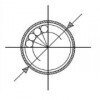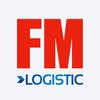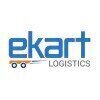Shift Incharge
30+ Shift Incharge Interview Questions and Answers for Freshers

Asked in Alok Industries

Q. How can you handle manpower to ensure efficient production?
Efficient manpower handling requires proper planning, training, communication, and motivation.
Create a detailed production plan and communicate it clearly to the team
Train the team on the production process and safety measures
Assign tasks based on individual strengths and skills
Provide regular feedback and recognition for good performance
Motivate the team with incentives and rewards for achieving targets
Maintain a positive work environment with open communication and problem-...read more

Asked in Alok Industries

Q. What is fabric contractions like epi ,ppi,rs Reed ,weft and warp also?
Fabric contractions like epi, ppi, rs Reed, weft and warp are measurements used to determine the density of threads in a fabric.
EPI (ends per inch) refers to the number of warp threads per inch of fabric
PPI (picks per inch) refers to the number of weft threads per inch of fabric
RS Reed (reed space) refers to the distance between the dents (slots) in a reed
Weft and warp are the two basic types of threads used in weaving
These measurements are important in determining the qualit...read more

Asked in Alok Industries

Q. Can you describe the different types of cam and dobby mechanisms, including diagrams and designs?
There are various types of cam and dobby designs used in textile industry.
Cam designs include plate cam, cylindrical cam, and grooved cam.
Dobby designs include single lift, double lift, and triple lift.
The choice of cam and dobby design depends on the type of fabric being produced and the desired pattern.
Cam and dobby designs can be represented using diagrams to show the movement of the loom.

Asked in Shahi Exports

Q. Wht is your present carding speed-130mpm,explain yarn realisation -it means example 100kg raw material given how much end product came-i have given answer-72 to below 80kg,& next wht type of m/c's available in...
read moreCarding speed is 130mpm. Yarn realization is 72-80kg from 100kg raw material. Available machines are LMW model - Card LC333, Breaker LD2, Lap former LH15, Comber LK64Z, Finisher LRSB851, Simplex LF4200/A, R/F LR9/AXL, Autoconer Muratec.
Carding speed is 130mpm
Yarn realization is 72-80kg from 100kg raw material
Available machines are LMW model - Card LC333, Breaker LD2, Lap former LH15, Comber LK64Z, Finisher LRSB851, Simplex LF4200/A, R/F LR9/AXL, Autoconer Muratec

Asked in Alok Industries

Q. What type of quality and fabric are used in your company?
We use high-quality fabrics like cotton, silk, and linen to ensure durability and comfort.
Our company focuses on using natural fabrics like cotton, silk, and linen.
We prioritize quality over quantity and ensure that our fabrics are durable and comfortable.
We also conduct regular quality checks to maintain our standards.
For example, we use 100% cotton for our t-shirts and linen for our summer collection.
Our fabrics are also eco-friendly and sustainable.

Asked in MELCO

Q. What is the standard operating procedure for starting a vacuum system?
Starting a vacuum system involves a series of steps to ensure safe and efficient operation.
1. Check the vacuum system components for any visible damage or wear.
2. Ensure all valves are in the correct position (e.g., closed for isolation).
3. Verify that the power supply is connected and functioning properly.
4. Turn on the vacuum pump and monitor for any unusual noises or vibrations.
5. Gradually open the inlet valve to allow the system to reach the desired vacuum level.
6. Monit...read more
Shift Incharge Jobs




Asked in Schaeffler India

Q. What are the strongest types of bearings?
The strongest bearings are typically made of materials like steel, ceramic, or titanium for high durability and load capacity.
Steel bearings are commonly used for their strength and durability.
Ceramic bearings are known for their high resistance to corrosion and wear.
Titanium bearings are lightweight yet strong, making them ideal for certain applications.
Asked in Sai Sulphonates

Q. How much steam is generated per ton of acid?
The amount of steam generation per ton of acid varies depending on the type of acid and the specific process used.
Steam generation per ton of acid can range from 1 ton to 5 tons, depending on the concentration and type of acid being processed.
Factors such as the temperature and pressure of the steam generation process also play a role in determining the amount of steam produced per ton of acid.
For example, sulfuric acid production typically requires around 3 tons of steam per...read more
Share interview questions and help millions of jobseekers 🌟


Asked in UPL

Q. What is a vacuum pump, and how does it work?
A vacuum pump removes gas molecules from a sealed volume to create a vacuum, enabling various industrial and scientific applications.
Types of vacuum pumps include rotary vane, diaphragm, and scroll pumps.
Rotary vane pumps use rotating blades to create a vacuum by trapping and compressing gas.
Diaphragm pumps utilize a flexible diaphragm to create a vacuum, often used in laboratory settings.
Scroll pumps compress gas between two spiral scrolls, providing a clean and oil-free vac...read more

Asked in NRB Bearings

Q. What is a bearing?
Bearing is a machine element that allows one part to bear another part's weight and facilitate relative motion between the two parts.
Bearing is used to support rotating shafts in machinery.
It reduces friction between moving parts.
Common types include ball bearings, roller bearings, and plain bearings.
Examples: wheel bearings in cars, bearings in electric motors.

Asked in Madhu Silica

Q. Reynolds number and types of flow based on it
Reynolds number is a dimensionless quantity used to predict types of fluid flow.
Reynolds number is calculated using the fluid velocity, density, viscosity, and characteristic length.
It predicts whether the flow is laminar, transitional, or turbulent.
Laminar flow occurs at low Reynolds numbers, while turbulent flow occurs at high Reynolds numbers.
Transitional flow occurs between laminar and turbulent flow.
Examples of laminar flow include blood flow in capillaries and flow in s...read more

Asked in Anupam Rasayan India

Q. What is the difference between unit operations and chemical reactions?
Unit operations involve physical changes in materials, while reactions involve chemical transformations.
Unit operations involve physical processes like filtration, distillation, and crystallization.
Reactions involve chemical processes like oxidation, reduction, and hydrolysis.
Unit operations focus on separating, mixing, or changing the physical state of materials.
Reactions focus on transforming the chemical composition of substances.
Examples of unit operations include sieving...read more

Asked in Pennar Industries

Q. What are annealing and quenching?
Annealing is a heat treatment process that involves heating a material to a specific temperature and then cooling it slowly to make it softer and more ductile. Quenching is a rapid cooling process used to harden materials.
Annealing involves heating a material to a specific temperature and then allowing it to cool slowly to relieve internal stresses and soften the material.
Quenching involves rapidly cooling a material by immersing it in a liquid or gas to harden the material b...read more

Asked in Pennar Industries

Q. What are drawing and piercing processes?
Draw and piercing are metalworking processes used to create holes in metal sheets.
Draw involves stretching a metal sheet over a die to form a cup or shell shape.
Piercing involves cutting or punching a hole in a metal sheet.
Both processes are commonly used in the manufacturing of automotive parts, household appliances, and metal containers.

Asked in FM LOGISTIC

Q. How do you plan manpower allocation across different functions?
Manpower divide should be planned based on workload, skillset required, and availability.
Analyze workload and divide tasks accordingly
Identify required skillset for each task
Assess availability of employees and their skillset
Allocate manpower based on workload and skillset availability
Regularly review and adjust manpower allocation as needed

Asked in Zepto

Q. How would you improve store performance?
Enhancing store performance involves optimizing operations, improving customer experience, and leveraging data-driven strategies.
Implement regular staff training to improve customer service skills, leading to higher customer satisfaction.
Utilize inventory management systems to reduce stockouts and overstock situations, ensuring product availability.
Analyze sales data to identify trends and adjust marketing strategies accordingly, such as seasonal promotions.
Enhance store layo...read more
Asked in Jayanand Engineering

Q. How do you align a vacuum pump?
To line up a vacuum pump, follow these steps.
Ensure the pump is properly mounted and secured.
Connect the pump to the system and turn it on.
Adjust the valves to achieve the desired vacuum level.
Monitor the pump and system for any issues or leaks.
Shut off the pump and disconnect it from the system when finished.
Asked in Creative Enviro Control

Q. Standard limit of all parameters?
Standard limits vary for different parameters and industries.
Standard limits are set based on industry regulations and guidelines.
For example, in the food industry, the standard limit for bacterial contamination is 10^4 CFU/g.
In the pharmaceutical industry, the standard limit for impurities in drugs is usually less than 0.1%.
Standard limits also vary for environmental parameters such as air quality and water quality.
It is important to regularly monitor and maintain parameters...read more
Asked in Creative Enviro Control

Q. What are the definitions of the basic parameters?
Basic parameters are fundamental measurements or values used to assess a system or process.
Basic parameters are essential for monitoring and controlling processes.
Examples include temperature, pressure, flow rate, and pH level.
These parameters are used to ensure that a system is operating within acceptable limits.
They can also be used to identify potential issues before they become major problems.
Asked in JP MODATEX LLP

Q. What is the thread per inch count?
TPI count refers to the number of threads per inch in a threaded fastener.
TPI count is a measurement used in the manufacturing and engineering industries.
It indicates the number of threads present in one inch of a threaded fastener, such as a screw or bolt.
A higher TPI count means more threads per inch, resulting in a finer thread pitch and increased thread engagement.
Conversely, a lower TPI count indicates fewer threads per inch, resulting in a coarser thread pitch.
TPI count...read more
Asked in Jayanand Engineering

Q. How do you operate the ash handling system?
Ash handling system is run by following proper procedures and guidelines to ensure safe and efficient operation.
Ensure proper maintenance of equipment
Regularly inspect and clean ash hoppers and conveyors
Train operators on safe handling and disposal of ash
Monitor ash quality and disposal methods
Follow environmental regulations and guidelines
Implement safety measures to prevent accidents

Asked in Insecticides India

Q. How can the use of natural resources be reduced?
Reducing natural resource use is crucial for sustainability. Here are some ways to achieve it.
Encourage recycling and reuse of materials
Promote energy-efficient practices
Use renewable energy sources
Reduce water consumption
Implement sustainable agriculture and forestry practices
Support conservation efforts
Encourage responsible consumption and production
Invest in research and development of sustainable technologies
Asked in JP MODATEX LLP

Q. What is your experience with the mills process?
The mill's process involves the transformation of raw materials into finished products.
The mill's process starts with the intake of raw materials such as logs, ore, or grains.
The raw materials are then processed through various stages such as cutting, grinding, or refining.
During the process, quality control measures are implemented to ensure the desired specifications are met.
Once the raw materials are transformed into the desired form, they are further processed or assemble...read more

Asked in JBS Enterprises

Q. What are your responsibilities in a substation?
In a substation, I manage operations, ensure safety, and maintain equipment for efficient power distribution.
Monitor and control electrical equipment to ensure optimal performance.
Conduct regular inspections and maintenance of transformers and circuit breakers.
Implement safety protocols to protect personnel and equipment.
Coordinate with utility companies for power distribution and outages.
Respond to emergencies and troubleshoot equipment failures.

Asked in Zepto

Q. How to control wasteage Inventory
Controlling wasteage in inventory involves implementing proper inventory management techniques and monitoring processes.
Implement a first in, first out (FIFO) system to ensure older inventory is used first
Regularly conduct inventory audits to identify and address any discrepancies
Train staff on proper handling and storage of inventory to prevent damage or spoilage
Utilize inventory tracking software to monitor stock levels and identify areas of waste
Establish clear policies an...read more

Asked in DIVI'S Laboratories

Q. Types of pumps
Pumps are devices used to move fluids from one place to another. There are various types of pumps available.
Centrifugal pumps
Positive displacement pumps
Axial flow pumps
Mixed flow pumps
Jet pumps
Submersible pumps
Diaphragm pumps
Gear pumps
Peristaltic pumps

Asked in Amber Enterprises India

Q. What is inventory?
Inventory refers to the goods and materials a business holds for the purpose of resale or use in production.
Inventory includes raw materials, work-in-progress, and finished goods.
It is an important asset on a company's balance sheet.
Inventory management involves tracking, ordering, and storing inventory efficiently.
Examples of inventory include merchandise in a retail store, components in a manufacturing plant, and supplies in a hospital.

Asked in Raymond Lifestyle Limited

Q. How do you manage manpower?
Effective manpower management involves planning, organizing, and leading a team to achieve operational goals efficiently.
Assess workforce needs: Analyze current and future staffing requirements based on production goals.
Implement training programs: Provide ongoing training to enhance skills and improve productivity, such as safety training for operators.
Foster communication: Encourage open dialogue among team members to address concerns and improve collaboration.
Monitor perfo...read more

Asked in Vedanta Aluminium

Q. Types of heat exchangers
Heat exchangers are devices that transfer heat between two or more fluids.
Shell and tube heat exchangers
Plate heat exchangers
Double pipe heat exchangers
Spiral heat exchangers
Air-cooled heat exchangers
Asked in Chaliyama Steel Plant

Q. Single acting Hydraulic circuit diagram
A single acting hydraulic circuit diagram shows the flow of hydraulic fluid in a system with only one direction of movement.
Single acting cylinders have one port for fluid to enter and exit, causing the piston to move in one direction only
The circuit includes a pump, directional control valve, cylinder, and reservoir
When the pump is activated, fluid is directed to the cylinder, causing the piston to extend or retract depending on the valve position
Interview Questions of Similar Designations
Interview Experiences of Popular Companies








Reviews
Interviews
Salaries
Users

















